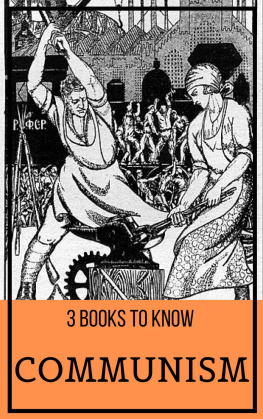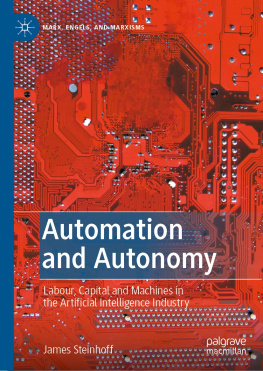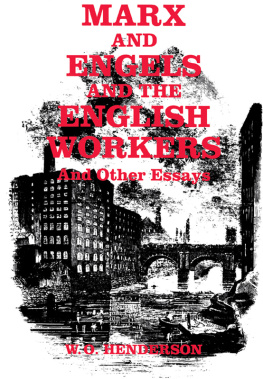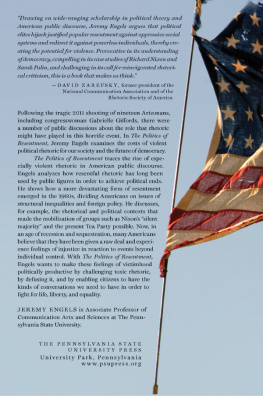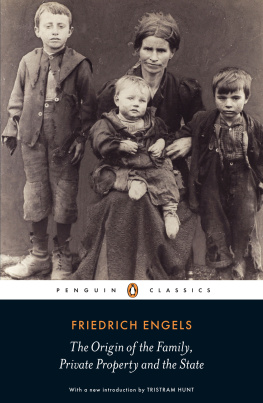Engels - Articles from The Labour Standard
Here you can read online Engels - Articles from The Labour Standard full text of the book (entire story) in english for free. Download pdf and epub, get meaning, cover and reviews about this ebook. publisher: Marxists Internet Archive, genre: Politics. Description of the work, (preface) as well as reviews are available. Best literature library LitArk.com created for fans of good reading and offers a wide selection of genres:
Romance novel
Science fiction
Adventure
Detective
Science
History
Home and family
Prose
Art
Politics
Computer
Non-fiction
Religion
Business
Children
Humor
Choose a favorite category and find really read worthwhile books. Enjoy immersion in the world of imagination, feel the emotions of the characters or learn something new for yourself, make an fascinating discovery.

Articles from The Labour Standard: summary, description and annotation
We offer to read an annotation, description, summary or preface (depends on what the author of the book "Articles from The Labour Standard" wrote himself). If you haven't found the necessary information about the book — write in the comments, we will try to find it.
Articles from The Labour Standard — read online for free the complete book (whole text) full work
Below is the text of the book, divided by pages. System saving the place of the last page read, allows you to conveniently read the book "Articles from The Labour Standard" online for free, without having to search again every time where you left off. Put a bookmark, and you can go to the page where you finished reading at any time.
Font size:
Interval:
Bookmark:
Articles from the Labour Standard
Frederick Engels
- Content
1877
Mar:
1881
May 07:
May 21:
May 28:
Jun 18:
Jun 25:
Jul 02:
Jul 09:
Jul 23:
Jul 23:
Jul 30:
Aug 06:
Letters
Aug 11:
Aug 10:
Aug 15:
1882
Feb 10:
- Introduction
As the 1870s drew to a close, the temporary peace between the English classes grew shakey. The Great Depression of the 1870s swept the western world and was, as always, particularly rough on the proletariat. The capitalist cycle down turn set in motion familiar attacks by the capitalist class against what reformist compromises within the capitalist system existed.
George Shipton, Secretary of the London Trades Council, also served as editor of The Labour Standard , the organof British trade unions. He asked Engels to contribute to a discussion of reformism and the labor movement itself.
Engels complied and, between May and August 1881, wrote 11 articles, all appearing as unsigned editorials. He used contemporary issues to elaborate basic economic principles of scientific socialism and the nature of capitalism itself. Engels stressed the inevitability of the conflict between the capitalists and the proletariatthat struggle isn't an aberration, it's a central feature of capitalism. Capitalists will forever be interested in lowering the wages and living conditions of the masses of property-less people because it's simply in their interest.
He held up trade unions asthe daily defenders of the working class in that struggle. In the first article, Engels said the labor movement should lose the meaningless slogan "A Fair Day's Wages for a Fair Day's Work" since capitalism's internal nature prevents capitalists from being "fair" to the workers whose wages they must continually seek to depress with the slogan: "Possesion of the means of work raw material, factories, machinery by the working people themselves!"
In the article "A Working Men's Party," Engels notes that unions alone cannot break people free from the endless cycle of capitalist wage-slavery. They must congregate in an independent political party. England's lack of such a party kept the working class tailing after the"Great Liberal Party." And that creates confusion and demoralization.
The MECW notes: "These articles by Engels exerted a definite influence on the young generation in the British socialist movement. James Macdonald, later to beone of the representatives of the Marxist wing of the British socialists, said what really attracted him to socialism were Engels' articles in The Labour Standard ( How I Became A Socialist , London, 1896, pp.61-62.)"
From different Engels letters (to Marx, August 11; to George Shipton, August 10 and August 15; to Johann Philipp Becker, February 101882) we learn he stopped writing for the paper because of the growth of "opportunist elements" in its editorial board.
- To the Working Men of Europe in 1877
Source : in The Labor Standard , March 3, 10, 17, 24 and 31, 1878;
Transcribed : by Tony Brown.
HTML : https://www.marxists.org/archive/marx/works/1878/03/03.htm
- I
The past year has been an eventful and a fruitful one for the Working Class of Europe. Great progress has been made in almost all countries with regard to the organization and extension of a Workingmens Party; unity, threatened at one time by a small but active sect, has been virtually restored; the working-class movement has forced itself more and more into the foreground of every-day politics, and, a sure sign of approaching triumph, political events, no matter what turn they took, always turned out, in some way or other, favorable to the progress of that movement.
At its very outset, the year 1877 was inaugurated by one of the greatest victories ever gained by workingmen. On the 10th of January, the triennial elections, by universal suffrage, for the German Parliament (Reichstag) took place; elections which, ever since 1867, have given the German Workingmens Party an opportunity of counting their strength and parading before the world their well organized and ever increasing battalions. In 1874, four hundred thousand votes fell to the candidates of labor; in 1877, more than six hundred thousand. Ten workingmen candidates were elected on the 10th, while twenty-four more had to be ballotted for in the supplementary elections which took place a fortnight after. Of these twenty-four, only a few were actually returned, all other parties uniting against them. But the important fact remained, that in all the large towns and industrial centres of the Empire the working-class movement had advanced with giant strides, and that all these electoral districts were certain to fall into their hands at the next ballotting in 1880. Berlin, Dresden, the whole of the Saxon manufacturing districts, and Solingen had been conquered; in Hamburg, Breslau, Nuremberg, Leipzig, Brunswick, in Schleswig-Holstein and the manufacturing districts of Westfalia and the Lower Rhine, a coalition of all the parties had scarcely sufficed to defeat the working-class candidates by bare majorities. German democratic socialism was a power, and a rapidly growing one, with which henceforth all other powers in the country, governing or otherwise, would have to reckon. The effect of these elections was enormous. The middle class were seized with a perfect panic, all the more so as their press had constantly represented social democracy as dwindling down into insignificance. The working class, elated at their own victory, continued the struggle with renewed vigor and upon every available battlefield; while the workingmen of other countries, as we shall see, not only celebrated the victory of the Germans as a triumph of their own, but were stimulated by it to fresh exertions in order not to be left behind in the race for the emancipation of labor.
The rapid progress of the Workingmens Party in Germany is not bought without considerable sacrifices on the part of those who take a more active part in it. Government prosecutions and sentences of fine, and oftener of imprisonment, hail down upon them, and they have long since had to make up their minds to passing the greater part of their lives in prison. Although most of these sentences are for short terms, a couple of weeks to three months, long terms are by no means of rare infliction. Thus, in order to protect the important mining and manufacturing district of Saarbrucken from the infection by social democratic poison, two agitators have recently been sentenced to two years and a half each, for having ventured upon this forbidden ground. The elastic laws of the Empire offer plenty of pretexts for such measures, and where they are not sufficient, the judges are mostly quite willing to stretch them to the point required for a conviction.
A great advantage to the German movement is that the Trades organization works hand in hand with the political organization. The immediate advantages offered by the Trades organization draw many an otherwise indifferent man into the political movement, while the community of political action holds together, and assures mutual support to, the otherwise isolated Trades Unions.
The success obtained in the elections to the German Parliament has encouraged our German friends to try their chance on other electoral fields. Thus, in two of the State Parliaments, in the smaller States of the Empire, they have succeeded in electing workingmen, and have also penetrated into a good many Town Councils; in the Saxon manufacturing districts, many a town is governed by a social democratic Council. The suffrage being restricted in these elections, no great result can be hoped for; still, every seat carried, helps to prove to the governments and the middle class that henceforth they will have to reckon with the workingmen.
Next pageFont size:
Interval:
Bookmark:
Similar books «Articles from The Labour Standard»
Look at similar books to Articles from The Labour Standard. We have selected literature similar in name and meaning in the hope of providing readers with more options to find new, interesting, not yet read works.
Discussion, reviews of the book Articles from The Labour Standard and just readers' own opinions. Leave your comments, write what you think about the work, its meaning or the main characters. Specify what exactly you liked and what you didn't like, and why you think so.



